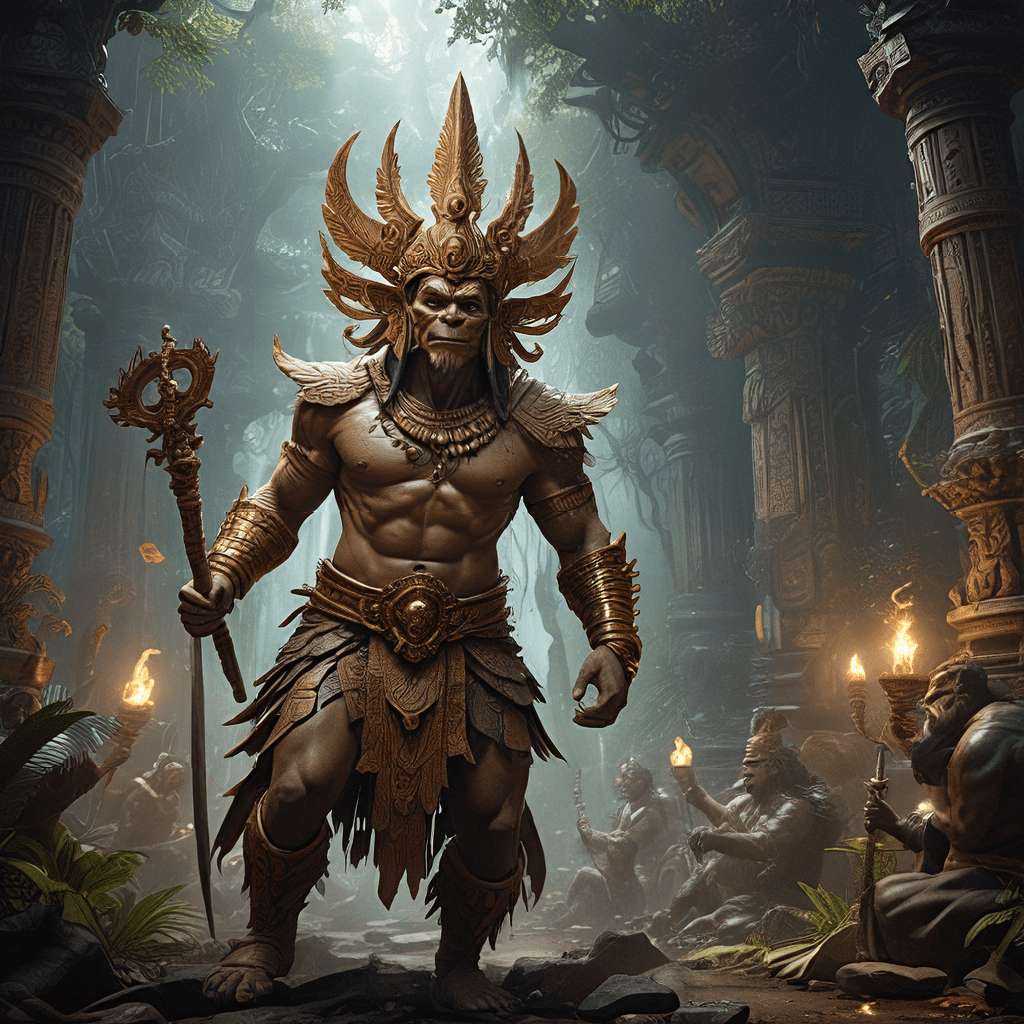Ancient Deities: The Forgotten Gods of Civilization
I. Introduction
Ancient deities refer to the gods and goddesses worshipped by early civilizations, playing a crucial role in their cultural and social frameworks. These divine beings were often seen as guardians of various aspects of life, from agriculture and war to love and the afterlife.
The significance of these deities extends beyond mere worship; they shaped moral codes, societal structures, and even political systems. As civilizations advanced, their pantheons evolved, leading to the rise of well-known figures while others faded into obscurity.
This article aims to explore lesser-known deities from various ancient cultures, examining their impact on civilization and the cultural implications of their worship.
II. The Concept of Deity in Ancient Civilizations
The nature of gods and goddesses in ancient civilizations is complex and varied. Typically, deities were personifications of natural forces or human experiences, often depicted with human traits but possessing supernatural powers.
- Major Deities: These were the principal gods of a pantheon, such as Zeus in Greek mythology or Ra in Egyptian lore, often associated with key elements of life and governance.
- Minor Deities: These figures were often specialized gods, overseeing specific aspects of life or nature, such as the Greek goddess Hecate, associated with magic and witchcraft.
Mythology served as a vital component of ancient societies, providing explanations for natural phenomena, moral lessons, and historical narratives that shaped cultural identities.
III. Ancient Mesopotamian Deities: Guardians of Civilization
Mesopotamia, often considered the cradle of civilization, had a rich tapestry of deities. Among the most prominent were:
- Anu: The sky god, revered as the source of all authority.
- Enlil: The god of wind and storms, believed to control the seasons and agriculture.
- Inanna: The goddess of love and war, representing the duality of human experience.
However, several lesser-known deities also played important roles in Mesopotamian culture:
- Nabu: The god of wisdom and writing, associated with the art of divination.
- Tiamat: A primordial goddess representing chaos, often depicted as a dragon.
Worship practices included temple rituals, offerings, and festivals that reinforced the connection between these deities and the everyday lives of the people.
IV. Egyptian Gods Beyond the Sun: Unveiling the Obscure
In ancient Egypt, well-known gods like Ra, Osiris, and Isis dominated the religious landscape. However, many lesser-known deities also contributed to the rich spiritual life of the Egyptians:
- Anubis: The god of mummification and the afterlife, often depicted as a jackal.
- Sekhmet: The lioness goddess of war and healing, symbolizing the duality of destruction and protection.
- Thoth: The god of wisdom, writing, and magic, often represented as an ibis or baboon.
Funerary practices were heavily influenced by these deities, with elaborate rituals designed to ensure safe passage to the afterlife and protection from malevolent forces.
V. The Forgotten Deities of the Greek Pantheon
While Greek mythology is often dominated by figures like Zeus, Hera, and Poseidon, numerous lesser-known deities had a significant impact on cultural practices:
- Hecate: The goddess of magic, witchcraft, and the moon, often invoked in rituals for protection and guidance.
- Pan: The rustic god of the wild, shepherds, and flocks, symbolizing the untamed aspects of nature.
- The Nereids: Sea nymphs, daughters of Nereus, who represented the beauty and dangers of the ocean.
These figures influenced various aspects of ancient Greek culture, including art, literature, and even philosophy, often serving as symbols of human emotions and experiences.
VI. Native American Spirituality: Deities of Nature and the Cosmos
Native American spirituality is diverse, with each tribe possessing its unique belief systems. Key figures in these traditions often embody natural elements:
- Coyote: A trickster figure representing adaptability and cunning.
- Raven: A creator and transformer, often associated with the sun and the cosmos.
- The Great Spirit: A universal force seen as the creator of all living things.
The connection between these deities and the natural world is profound, with rituals and stories that emphasize harmony with nature and respect for all living creatures.
VII. The Role of Deities in Ancient African Cultures
African cultures are rich in spiritual traditions, with various deities playing significant roles:
- Olorun: The supreme god in Yoruba religion, embodying the sun and creation.
- Anansi: A spider god and trickster figure in Akan folklore, representing wisdom and storytelling.
- Mami Wata: A water spirit associated with fertility and healing.
Oral traditions and rituals are central to these cultures, preserving the stories and teachings of the gods. However, colonialism has often led to a diminished perception of these deities, creating a need for revival and recognition.
VIII. Deities of the Far East: Lesser-Known Figures in Asian Mythology
In the rich tapestry of Asian mythology, many major gods exist alongside lesser-known figures:
- Hinduism: While deities like Vishnu and Shiva are well-known, local spirits and lesser forms of Ganesha hold significant importance in regional practices.
- Buddhism: Various bodhisattvas and local deities often integrate with daily life, influencing customs and rituals.
These deities are often seen as integral parts of cultural identity, weaving spirituality into the fabric of everyday life.
IX. The Legacy of Forgotten Deities
The legacy of forgotten deities serves as a reminder of the diversity of human belief and the complexities of ancient cultures. As societies evolve, many of these figures fade from collective memory, yet their influence persists through art, literature, and cultural practices.
Reviving interest in these lesser-known gods can offer valuable insights into the values, fears, and aspirations of ancient peoples, enriching our understanding of human history and spirituality.



